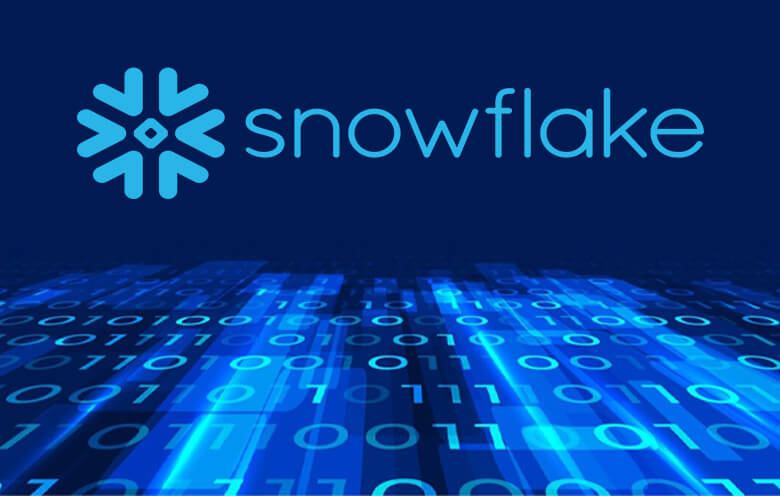Snowflake
Snowflake In the era of big data, organizations are constantly seeking innovative solutions to manage and analyze vast amounts of information efficiently. Snowflake is one such solution that has rapidly gained popularity for its unique approach to data warehousing. As a cloud-native data platform, Snowflake offers unparalleled scalability, performance, and ease of use, making it an ideal choice for businesses of all sizes.
What is Snowflake?
Snowflake is a fully managed data warehouse-as-a-service (DWaaS) that runs on cloud infrastructure, offering a seamless experience for data storage, processing, and analysis. Unlike traditional data warehouses, Snowflake separates compute and storage, allowing for independent scaling of each component. This architecture not only improves performance but also provides cost-efficiency by enabling businesses to pay only for the resources they use.
Key Features of Snowflake
- Cloud-Native Architecture
- Separation of Compute and Storage: Snowflake’s architecture is built to scale, with compute and storage resources managed independently. This separation allows for flexible scaling, ensuring that businesses can handle varying workloads without overcommitting resources.
- Multi-Cloud Support: Snowflake operates across multiple cloud platforms, including AWS, Microsoft Azure, and Google Cloud. This multi-cloud support gives organizations the flexibility to choose the cloud provider that best meets their needs or to operate across multiple clouds for added resilience.
- Data Sharing and Collaboration
- Secure Data Sharing: Snowflake’s platform allows for secure and seamless data sharing between different organizations or departments. This feature is particularly useful for businesses that need to collaborate on data without the hassle of data movement or replication.
- Data Marketplace: Snowflake’s Data Marketplace enables users to access and share data sets across various industries, enhancing collaboration and enabling new insights through shared data.
- Performance and Scalability
- Automatic Scaling: Snowflake automatically scales resources to match workload demands, ensuring that performance remains consistent even as data volumes grow or queries become more complex.
- High-Performance Querying: The platform is optimized for high-performance querying, allowing businesses to run complex analytical queries on large datasets with minimal latency.
- Security and Compliance
- Comprehensive Security Features: Snowflake provides end-to-end encryption, role-based access control (RBAC), and network security features to protect data from unauthorized access.
- Compliance Certifications: Snowflake is compliant with a range of industry standards, including GDPR, HIPAA, and SOC 2, making it a secure choice for handling sensitive and regulated data.
- Data Integration and Transformation
- Built-In ETL Tools: Snowflake supports seamless data integration with built-in extract, transform, load (ETL) capabilities. These tools simplify the process of ingesting, transforming, and loading data from various sources into the Snowflake data warehouse.
- Support for Structured and Semi-Structured Data: Snowflake can handle both structured data (like relational databases) and semi-structured data (such as JSON, Avro, and Parquet), making it versatile for various data types and use cases.
Benefits of Using Snowflake
1. Simplified Data Management
Snowflake’s fully managed service eliminates the need for complex infrastructure management, allowing businesses to focus on data analysis and insights rather than database administration. This simplification reduces operational overhead and accelerates time-to-value for data-driven initiatives.
2. Cost Efficiency
The pay-as-you-go pricing model of Snowflake ensures that businesses only pay for the resources they use. With the ability to scale compute and storage independently, organizations can optimize costs based on their specific workload requirements, avoiding unnecessary expenditures.
3. Enhanced Collaboration
With Snowflake’s secure data sharing capabilities, organizations can easily collaborate with partners, vendors, or internal teams without compromising data security. This collaborative environment fosters innovation and drives better decision-making by enabling access to shared data insights.
4. High Performance and Scalability
Snowflake’s architecture is designed to handle large-scale data processing with high efficiency. Whether you’re running simple queries or complex analytics, Snowflake delivers consistent performance, making it suitable for both small businesses and large enterprises with demanding data needs.
5. Robust Security and Compliance
Security is at the core of Snowflake’s design, with advanced encryption, access controls, and compliance with industry standards. These features ensure that your data is protected at all times, giving you peace of mind when dealing with sensitive information.
Use Cases of Snowflake
1. Real-Time Data Analytics
Snowflake is ideal for organizations that need to perform real-time analytics on large datasets. Its ability to process and analyze data quickly makes it a valuable tool for industries like finance, where real-time decision-making is crucial.
2. Data-Driven Marketing
Marketing teams can leverage Snowflake’s data integration and analytical capabilities to gain deeper insights into customer behavior. By analyzing data from various sources, marketers can create more targeted campaigns, optimize customer journeys, and improve ROI.
3. Financial Reporting and Compliance
For financial institutions, Snowflake’s secure and compliant platform is perfect for managing financial data. The platform’s ability to handle large volumes of data and provide real-time insights ensures that financial reports are accurate and up-to-date, helping organizations meet regulatory requirements.
Table of Contents
Comparison with Competitors
When compared to other data warehousing solutions, Snowflake stands out for its cloud-native architecture, automatic scaling, and robust data sharing capabilities. While traditional data warehouses may offer similar features, Snowflake’s ability to separate compute and storage, along with its multi-cloud support, provides a level of flexibility and performance that is unmatched in the industry.
Snowflake
As businesses increasingly rely on data to drive their operations and make strategic decisions, having a powerful, flexible, and secure data platform is essential. Snowflake offers a comprehensive solution that not only meets these needs but also provides a future-proof architecture that can scale with your business. By choosing Snowflake, organizations can unlock the full potential of their data, streamline operations, and gain a competitive edge in the market.
